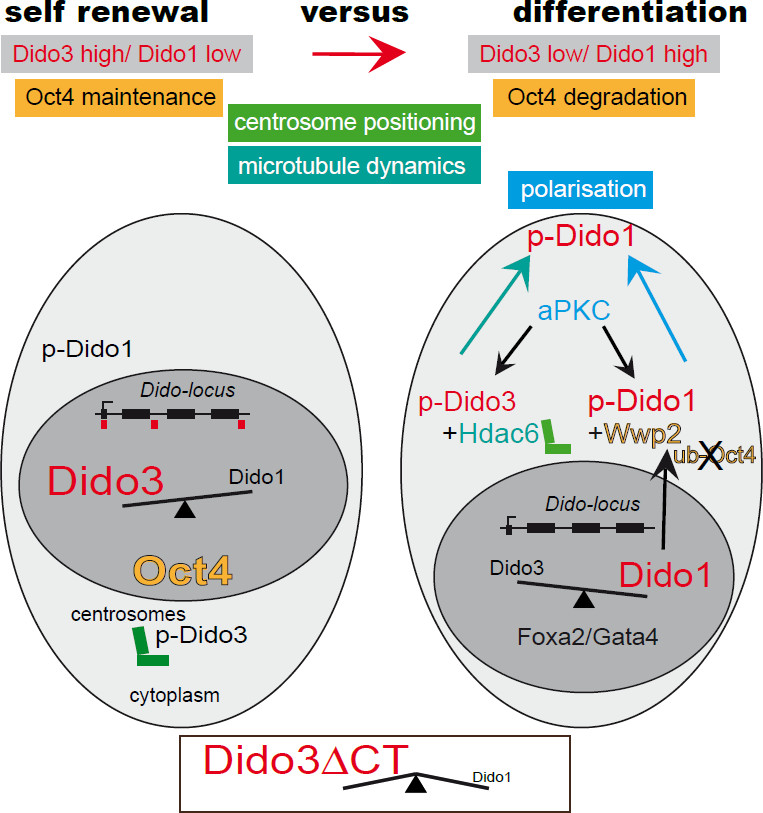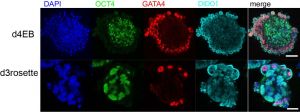Different forms of the Dido protein tell the embryonic stem cells –which are undifferentiated cells – when to begin to differentiate. This was demonstrated by a team of scientists from the Centro Nacional de Biotecnología of the CSIC (CNB-CSIC) in collaboration with researchers from the Centro de Biología Molecular Severo Ochoa. The study was recently published online in the journal Stem Cell Reports.
The authors have spent years delving into the Dido gene and the three proteins it encodes (DIDO1, DIDO2 and DIDO3) to decipher its role in stem cell biology. This latest study sheds some light on the machinery involved in one feature that makes these cells unique: the decision to replicate and maintain itself as a stem cell, or to differentiate into a specific cell in one of the body’s tissues.
According to the authors, the Dido gene is responsible for the cell taking one path or the other. When the time comes to differentiate, expression of DIDO3 (the largest form of the protein) decreases, while that of DIDO1 (the smallest form) increases. "In this way," says Carlos Martínez-A., lead author of the study, "the Dido gene acts as a switch that turns on the differentiation process."
In addition, according to scientists' observations, both proteins must be located in different, very specific cell compartments. For differentiation to begin, Dido1 must be in the cytoplasm; when the stem cell maintains its self-replication, Dido3 must be in the centrosome.
Stem cells in biomedicine
The use of stem cells in medicine, through bone marrow transplantation, is already a reality for the treatment of numerous diseases. For other pathologies with no effective treatment so far, such as some neurodegenerative diseases, cancer, myocardial infarction or diabetes, the use of these cells opens a new window on the future. Stem cell biology nonetheless still has many shortcomings.
"Understanding the molecular mechanisms that govern the process of stem cell autoreplication and differentiation is central to advancing the development of regenerative medicine, fundamentally to be able to act in vivo on the adult stem cells present in different tissues," explains Martínez-A.
- Agnes Fütterer, Jésus de Celis, Rosana Navajas, Luis Almonacid, Julio Gutiérrez, Amaia Talavera-Gutiérrez, Cristina Pacios-Bras, Ilenia Bernascone, Fernando Martin-Belmonte, Carlos Martinéz-A. DIDO as a Switchboard that Regulates Self-Renewal and Differentiation in Embryonic Stem Cells. DOI: http://dx.doi.org/10.1016/j.stemcr.2017.02.013

Figure from Agnes et al. Stem Cell Rep 2017






